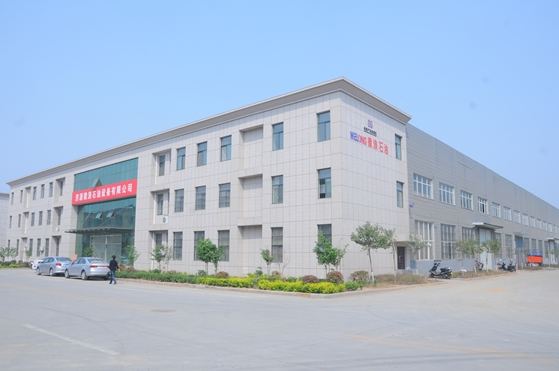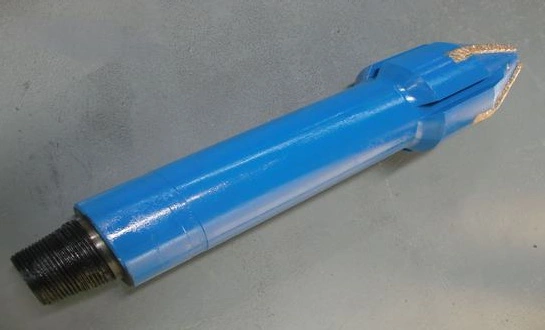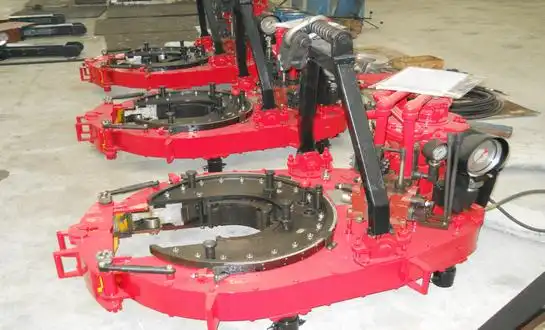How do precision rolls improve steel mill efficiency and product quality?
Enhanced Surface Finish and Dimensional Accuracy
Precision rolls are engineered to deliver superior surface finishes on steel products. Their carefully designed surfaces and precise dimensions ensure that the steel being processed maintains consistent thickness and smoothness throughout the rolling process. This level of accuracy is crucial for industries that require high-quality steel with specific tolerances, such as automotive manufacturing or aerospace applications. By minimizing variations in the steel's surface and dimensions, precision rolls contribute to reduced waste and improved product quality, ultimately enhancing the efficiency of the entire steel production line.
Increased Production Speeds and Output
The durability and precision of modern mill rolls allow for increased production speeds without compromising quality. Advanced materials and manufacturing techniques enable these rolls to withstand higher operational temperatures and pressures, facilitating faster processing times. This increased speed translates directly to higher output volumes, allowing steel mills to meet growing demand more efficiently. Moreover, the consistent performance of precision rolls means less downtime for maintenance or replacement, further boosting overall productivity and reducing operational costs.
Reduction in Energy Consumption
Engineered for optimal performance, precision mill rolls contribute significantly to energy efficiency in steel production. Their design minimizes friction and heat generation during the rolling process, reducing the energy required to maintain operational temperatures. Additionally, the improved surface finish they provide often eliminates the need for secondary finishing processes, further saving energy and resources. This reduction in energy consumption not only lowers production costs but also aligns with the industry's growing focus on sustainability and environmental responsibility.
Custom-Engineered Precision Rolls: Tailoring Solutions for Steel Production
Adapting to Specific Steel Grades and Products
The diversity of steel products necessitates a tailored approach to roll design. Custom-engineered precision rolls are developed to cater to specific steel grades, thicknesses, and end-product requirements. For instance, rolls designed for processing high-strength steel will have different characteristics compared to those used for thin-gauge automotive steel. This specialization ensures optimal performance and quality across various steel products, from heavy plate to thin sheet. Manufacturers work closely with steel mills to understand their unique production needs, developing rolls that are perfectly suited to their specific applications and production lines.
Innovative Surface Treatments and Coatings
Advancements in surface engineering have revolutionized the performance of mill rolls. Custom surface treatments and coatings are applied to enhance durability, wear resistance, and friction characteristics. These innovations can include thermal spraying, laser cladding, or advanced ceramic coatings. Such treatments not only extend the life of the rolls but also improve the quality of the steel being processed. For example, certain coatings can reduce the transfer of roll material to the steel surface, ensuring a cleaner, higher-quality product. These custom solutions allow steel mills to optimize their processes for specific products, improving both efficiency and output quality.

Integration of Smart Technologies
The future of precision rolls lies in the integration of smart technologies. Custom-engineered rolls are increasingly incorporating sensors and monitoring systems that provide real-time data on performance, wear, and operational conditions. This integration allows for predictive maintenance, optimizing roll changeover schedules, and preventing unexpected downtime. Advanced analytics can also help fine-tune the rolling process, adjusting parameters in real-time to maintain optimal quality and efficiency. By leveraging these smart technologies, steel mills can achieve unprecedented levels of control and optimization in their production processes.
What materials are used in manufacturing durable precision mill rolls?
High-Chrome Steel Alloys
High-chrome steel alloys are a cornerstone in the manufacturing of durable precision mill rolls. These alloys typically contain between 3% to 18% chromium, which imparts excellent wear resistance and hardness. The high chromium content forms a protective oxide layer on the surface, enhancing corrosion resistance—a critical factor in the harsh environment of steel mills. These alloys are often used in hot rolling applications where the rolls are subjected to extreme temperatures and mechanical stresses. The combination of strength, wear resistance, and thermal stability makes high-chrome steel alloys an ideal choice for rolls that need to maintain their precision over extended periods of high-temperature operation.
Carbide-Reinforced Composites
Carbide-reinforced composites represent a significant advancement in mill roll technology. These materials combine a tough steel matrix with hard carbide particles, often tungsten carbide or chromium carbide. The resulting composite offers exceptional wear resistance and hardness while maintaining the toughness necessary to withstand the impact and thermal shocks common in rolling operations. The carbide particles act as reinforcements, resisting abrasion and preventing premature wear. This composition allows for the creation of rolls with longer service lives and more consistent performance, particularly in applications involving high-strength steels or abrasive materials.
Advanced Ceramic Materials
Ceramic materials are increasingly being utilized in the production of high-performance mill rolls, especially for cold rolling applications. Materials such as silicon nitride and zirconia offer unparalleled hardness and wear resistance, combined with excellent thermal properties. These ceramic rolls maintain their dimensional stability and surface finish even under extreme pressures and speeds, making them ideal for producing ultra-thin or high-quality surface finish steel products. While more brittle than metal alloys, advanced manufacturing techniques and careful design allow these ceramic rolls to withstand the rigors of steel production while delivering superior performance in terms of product quality and consistency.
Source: CHINA WELONG-Oilfield tools Manufacturer
FAQ about Mill Rolls
What is the typical lifespan of a precision mill roll?
The lifespan of a precision mill roll can vary significantly depending on factors such as the material it's made from, the specific application, and the operating conditions. Generally, high-quality mill rolls engineered for durability can last anywhere from a few months to several years. Hot rolling mills typically see shorter lifespans due to the extreme temperatures and stresses involved, with rolls often lasting 3-6 months before requiring replacement or refurbishment. Cold rolling mill rolls, operating under less severe conditions, may last 1-2 years or more. However, with advancements in materials and surface treatments, some modern precision rolls are achieving even longer service lives, significantly reducing downtime and replacement costs for steel mills.
How often should mill rolls be inspected and maintained?
Regular inspection and maintenance of mill rolls are crucial for ensuring optimal performance and longevity. The frequency of inspections depends on the type of rolling operation and the specific rolls in use. As a general guideline: - Daily visual inspections should be conducted to check for any obvious signs of wear, damage, or inconsistencies in roll surface quality. - Weekly or bi-weekly more detailed inspections may involve surface roughness measurements and dimensional checks. - Monthly or quarterly comprehensive inspections should include non-destructive testing methods to detect any internal flaws or fatigue. Maintenance activities, such as surface cleaning, lubrication of bearings, and minor repairs, should be performed according to the manufacturer's recommendations and the specific needs of the mill. Predictive maintenance techniques, utilizing data from integrated sensors and monitoring systems, are increasingly being employed to optimize maintenance schedules and prevent unexpected failures.
Can precision mill rolls be refurbished, and what does the process involve?
Yes, precision mill rolls can often be refurbished, extending their useful life and providing significant cost savings for steel mills. The refurbishment process typically involves:
1. Inspection: A thorough examination to assess the extent of wear and any damage.
2. Cleaning: Removal of any contaminants or residues from the roll surface.
3. Machining: Regrinding or turning the roll to restore its surface profile and dimensions.
4. Surface treatment: Reapplication of coatings or surface treatments to enhance wear resistance.
5. Heat treatment: If necessary, to restore the roll's metallurgical properties.
6. Final inspection: Ensuring the refurbished roll meets the required specifications.
The specific refurbishment process can vary depending on the roll type, material, and intended application. Advanced refurbishment techniques may include laser cladding or thermal spraying to rebuild worn areas with high-performance materials. It's important to note that while refurbishment can significantly extend a roll's life, there is typically a limit to the number of times a roll can be refurbished before replacement becomes necessary.
In conclusion, precision rolls engineered for durability are the unsung heroes of the steel industry, ensuring efficiency, quality, and consistency in steel production. Their impact on product quality, mill efficiency, and overall productivity cannot be overstated. As technology continues to advance, we can expect even more innovative solutions in mill roll design and manufacturing, further enhancing the capabilities of steel mills worldwide. For more information on precision mill rolls and their applications in the oil and gas industry, please contact us at oiltools15@welongpost.com. Welong is committed to providing cutting-edge solutions for all your industrial needs.





